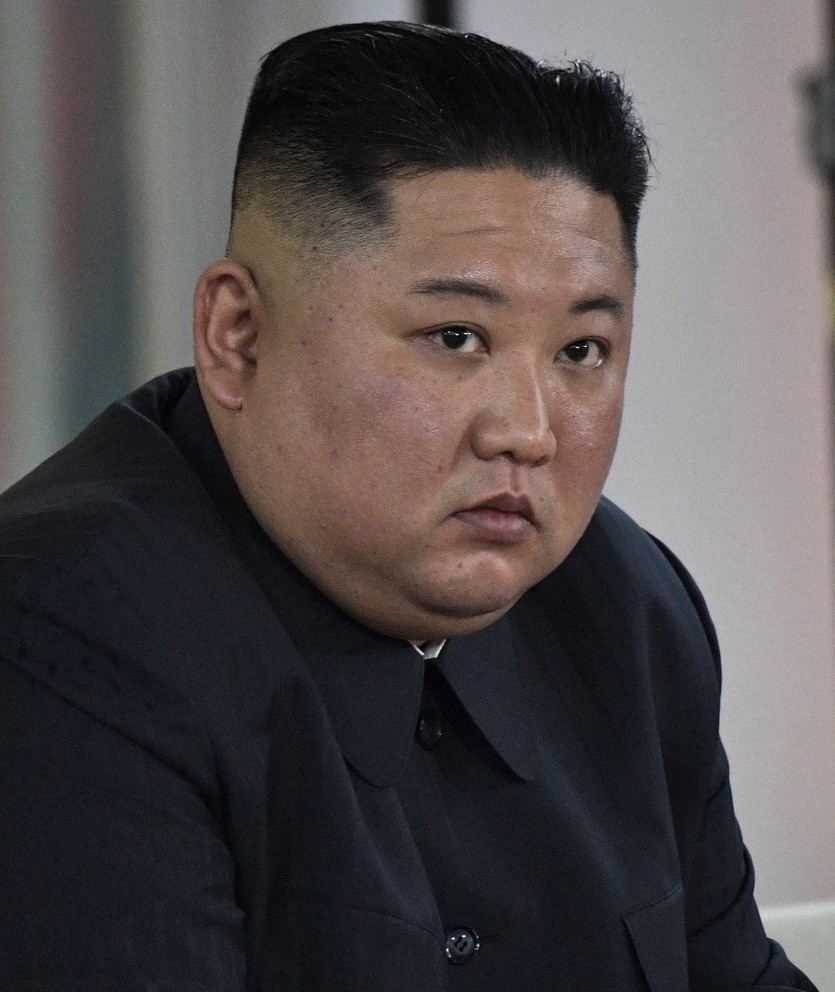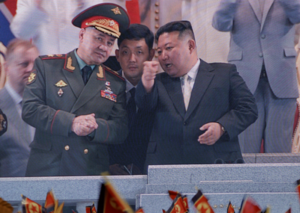 Supreme Leader of North Korea Kim Jong Un | Image: The Presidential Press and Information Office of Russia
Supreme Leader of North Korea Kim Jong Un | Image: The Presidential Press and Information Office of Russia
North Korea’s Provocations: Should We Take Them Seriously?
2023 was a troubling year. The Russia-Ukraine war dragged on, a Chinese spy balloon traversed the United States, and a Hamas attack on Israel led to war and the threat of a regional conflagration. To ring in 2024, North Korea’s latest provocations gave the world another reason to worry, as Kim Jong Un reversed his country’s longstanding policy of peaceful reunification with South Korea and declared it the “principal enemy.” Soon after, the Monument to the Three Charters for National Reunification, a symbol of Korean unification, was torn down and government agencies that managed relations with South Korea were dissolved.
North Korea is an increasingly dangerous adversary equipped with a nuclear arsenal and, as of 2022, the fourth-largest military in the world. Its cooperation with Russia has increased significantly, posing a threat not only to U.S. national security but to international security as well. Repressive regimes that deny fundamental human rights, seek to redraw internationally recognized borders by force, and threaten the use of nuclear weapons are a peril to every nation. North Korea’s reckless behavior and provocative rhetoric affect all those who wish to avoid yet another war.
Kim Jong Un’s recent conduct is regarded by some as his typical saber-rattling. Thomas Schäfer, the former German Ambassador to North Korea, dismisses claims of an impending North Korean offensive. He notes that because it is an election year in the United States, Kim may be deliberately heightening tensions to bolster his hand in negotiations “in the hope to get sanctions relief, some sort of acceptance of their nuclear program, and—as main objective—a reduction or even complete withdrawal of US troops from the Korean Peninsula.” Others hold a more unsettling view. Robert Carlin, a former State Department official involved in U.S.-North Korea negotiations, and Siegfried Hecker, a nuclear scientist previously granted access to a North Korean nuclear facility, alarmed the public by claiming, “We believe that, like his grandfather in 1950, Kim Jong Un has made a strategic decision to go to war.” They argue that decades of failed normalization efforts with the United States, most notably the 2019 Trump-Kim Hanoi Summit, have compelled Kim to alter his strategy, deepening ties with Russia and considering “both the need and opportunity—and perhaps the timing—toward a military solution to the Korean question.”
But there are other explanations for North Korea’s provocations. Perhaps, emboldened by Russia’s full-scale invasion of Ukraine, Kim believes that warfare is once again an option for settling political disputes and redefining borders. Perhaps, considering the unprecedented strengthening of the Russia-North Korea relationship, Vladimir Putin gave Kim his blessing to open yet another front to distract the West from thwarting his revisionist aspirations; Russian Foreign Minister Sergey Lavrov went as far as to accuse the United States, South Korea, and Japan of preparing for war with North Korea. And let us not forget that South Korea has given substantial aid to Ukraine in its war with Russia.

Russian Defense Minister Sergei Shoigu with Kim Jong Un in North Korea (2023) | Image: Ministry of Defense of the Russian Federation
If Kim is not bluffing, the consequences of a North Korean operation against South Korea could prove catastrophic depending on Kim’s strategic objective. If he seeks to distract the United States from its other commitments or extract concessions, he may continue to conduct missile tests, attack using coercive, disruptive tactics, such as damaging the Korean South-North oil pipeline, or even attempt to seize one of the South Korean West Sea Islands. However, if Kim’s true goal is the reunification of the Korean Peninsula by force, the fallout could be catastrophic. A nuclear war could erupt, causing mass casualties, devastating the global economy, and contaminating the environment for generations.
The ongoing war in Ukraine, Middle East chaos, and a belligerent China are spreading the United States thin, and North Korea’s provocations might further divide the world’s attention. Another front on the Korean Peninsula would prove difficult to manage at best and existential at worst. Will Kim choose war? No one knows for certain. But if the past few years are any guide, we must take threats posed by malign actors seriously.
Image Credit (1): “Kim Jong-un (2019-04-25) 03 (cropped)” by The Presidential Press and Information Office is licensed under CC BY 4.0.
Image Credit (2): “Sergey Shoigu with Kim Jong-un in Pyongyang (2023)” by Ministry of Defense of the Russian Federation is licensed under CC BY 4.0.





